The (Sort-Of) Return of Continental Motorhome Holidays and Tours
In just over a week’s time on 17 May 2021, foreign travel from England will become legal again, but for the time being it’ll likely only appeal to motorhome tourers able to commit to at least a few weeks away. Let’s have a look at the current practicalities of motorhome travel in the pandemic: the English traffic light system, COVID-19 restrictions in Europe, getting tests, finding places to stay, buying travel insurance and so on.
What’s It Like Being Abroad During the Pandemic?
Before we get into the nitty-gritty, just what is it like being outside the UK in your motorhome during the pandemic? We have some experience of this, having spent last winter in Spain at a campsite near Nerja on the Costa del Sol. We drove there in our motorhome in October 2020, flew home when my mum died in November and flew back before Xmas before driving home in late March 2021. Other motorhome bloggers we follow have managed to move around much more than we did in Europe, Africa and Asia, writing about their experiences as they went. Here are a few of them if you want to take a look at their blog posts or videos:
Although it might seem like the locals in some places would resent the presence of foreign motorhomes, we’ve personally seen none of that. Quite the opposite. The Spanish family who owned the campsite we stayed on were very welcoming, as were the waiters and staff in the shops and restuarants who remained open in the town. Chatting with some of the other motorhomes travelling over the winter, and reading their blog posts, this seems to be a common theme.
We were careful to understand and observe the local rules in force in our town including a nighttime curfew (we were already in bed anyway when it kicked in!), the need to wear facemasks almost everywhere in public (we quickly got used to this), closed regional borders (we’d planned to stay still in Nerja all winter anyway), social distancing (this already felt normal when we headed out) and the need for isolation if we felt unwell (again just the same as the UK).
We also used hand sanitiser when entering and leaving our campsite, and the site’s shower block was well ventilated and rarely had more than one other person in there when we took a shower. Our pitch on the site was tucked away in a corner where we had our own water tap and easy access to an Eslan point where we could also bucket away grey water (plus our own banana plants and custard apple tree). We used our own facilities for everything except showers, and we felt very safe. In the event one or both of us became seriously ill it would have been easy for us to get help via the campsite owners, who also spoke English.
Other than that the big difference between January 2021 and January 2020 in Nerja was just how quiet the town was during the pandemic. At some stages the borders around the town were ‘closed’ (there weren’t roadblocks, but spot checks took place), so only residents were knocking around. Bars, restuarants, gyms, shops and schools were able to stay open all winter, although they had restrictions around closing times and limited occupancy. Along with all the hotels many restaurants closed due to lack of punters, but enough remained open to give the town some life.
Probably the most stressful part of travel during the pandemic was the constantly changing rules. When we chose to drive or fly, borders would often partly close behind us just a few hours or days after we’d passed through. At one point there was talk (completely inaccurately) in the press of Spain being added to the red list, which would have cost us over £2,000 in hotel quarantine costs and rearranged ferries. Each time we’ve returned to the UK the requirements have changed. The last time we came home (at the end of March 2021) we had to take a covid test before we caught the ferry. If either of our rapid test results were positive we would have needed to isolate in the van for ten days (and we’d just eaten the fridge and freezer down for the ferry crossing) and spend another £500 or so on ferry tickets and tests. Fortunately that didn’t happen, and once we were home, our eventual freedom from quarantine was at the mercy of an overloaded day 2/8 test system.
Spain has (so far, and hopefully this continues) managed to avoid another stay-at-home lockdown like it had in the spring of 2020. Other countries haven’t of course, and the situation changes all the time. To get an idea of the current situation in any of the EU countries, we’d recommend looking it up on re-open EU and the Entry Requirements section for each country on the FCDO website, for example: France, Spain, Belgium or The Netherlands.
The Traffic Light System
The English traffic light system assigns every country in the world a colour: red, amber of green. This has been done as of 7 May, and a new list will be issued every 3 weeks. A country’s colour determines what travellers need to do when they come back to England: what tests they have to take to board transport to England and what type and length of quarantine is needed. Remember these rules are only England’s. If you’re in Scotland, Wales or Northern Ireland then the relaxation dates for foreign travel haven’t yet been announced. Also, as mentioned above, the countries you intend to travel to will have their own rules about who can enter and for what reasons, testing, quarantine and track and trace requirements.
| Colour | Tests Before Returning to the UK | Quarantine in the UK | Tests After Arriving in the UK |
| Red | Rapid Test Before Boarding Ferry | 10 Days (11 Nights) ‘Hotel’ Quarantine | PCR Tests on or Before Day 2 and Day 8 |
| Amber | Rapid Test Before Boarding Ferry | 10 Days at Home | PCR Tests on or Before Day 2 and Day 8. Optional Day 5 Test for Quicker Release |
| Green | Rapid Test Before Boarding Ferry | Not Required | PCR Test on or Before Day 2 |
In all cases you also have to complete a UK passenger locator form before boarding the ferry or train home. Some countries might offer free rapid tests which can be used for returning to the UK, but in general a couple heading on a motorhome holiday to an amber list country would currently have to pay around £450 in tests:
- £90 each for a PCR test before you leave the UK (if the country you are going to requires one).
- €40 each for a rapid test abroad before boarding the ferry home.
- and around £99 each for a Day 2+8 test kit while you’re in UK quarantine at home.
If you intend to tour or drive across countries to reach your destination in your motorhome, you may need to budget for any additional tests required to cross borders.
As of 7 May 2021, the main ferry/train arrival countries in Europe are all amber: France, Spain, The Netherlands and Belgium. Travel to amber countries is discouraged by the government but it is legal (assuming those countries accept UK residents). Compared with the UK and green countries, amber countries have a higher risk associated with COVID-19, it will cost more to return due to additional testing, a need for home-based quarantine and (possibly) a country could shift from amber to red while you’re there.
Red countries require you to pay for government-provided hotel quarantine, which is very expensive (check here for the latest costs), however the hotel quarantine system is only set up for people arriving by air to certain airports. It is unclear what would happen if France or Spain went onto the red list and how or where returning motorhomers would be quarantined as consideration would need to be made for secure motorhome parking as well as provision for those travelling with pets.
All of this seems to point to motorthome trips to the continent still being off-the-cards for most folks for the next few weeks/months at least. If, however, you’ve been gearing up for a long tour of several weeks or months and can quarantine on arrival/on return, your dream will at least shortly become legal again (assuming you live in England and haven’t already used up your 90 in 180 day Schegen zone allowence).
Getting COVID-19 Tests in the UK and Abroad
So, if you did choose to travel at the moment you’re likely to need some or all of these tests:
- PCR tests in the UK before leaving on your trip.
If your first country abroad requires a PCR test, you’ll need to source this yourself and make sure it has your passport number on it (you can’t use the NHS testing service). You’ll also need to be sure you take the test within the permitted timeframe of arrival in your destination country, typically a maximum of 72 hours beforehand but double check as it does vary. This makes long ferries like the 24 hour boats to northern Spain awkward as PCR tests have to be processed in a lab, and if using a postal service the tests can take more than 48 hours to arrive in the lab and the results to be emailed back. To try and ensure we got our results in time, we used a pharmacy about 5 miles from our home which dispatched completed tests in bulk to the lab, helping avoid delays in postage. - A rapid (antigen) test before boarding your ferry or train home to the UK.
Again you’ll need to source this yourself and will need to take it within 3 days of boarding the ferry or train to England, as described here. We booked online into a testing clinic at Santander and arrived 3 days before our ferry and took the tests with 2 days to spare. We got the results 2 hours later, but others got theirs within minutes. Other travellers opted to get their tests done well away from the ferry port, getting a negative result before driving across the country to the port. Some travellers in France report you can get these tests from pharmacies. - At least one PCR test each on returning to the UK.
You have to use a government-approved provider for your day 2/day 8 tests. The government has a list of providers here. The list is huge now and growing by the day. The costs of tests are also coming down, with the cheapest provider now offering two PCR tests for £99 (Testing for All, who also have good reviews on Trust Pilot). From personal experience we know some providers offer a poor service, and we’d recommend checking reviews before buying tests.
You don’t need to print out any test results or locator/certificate forms. You can complete or save them on your your phone or tablet, although it can be a bit of a faff when you’re having to swipe around loading up several different documents potentially for several people at the ferry check-in. We carried printed copies of our antigen results when we came back from Spain, which helped speed up the process of checking in to the ferry. We’ve also heard some officials asking to see proof that you’ve bought day 2/8 tests, so it’s worth keeping the receipts just in case.
For a fuller list of all the steps to take planning a trip abroad, this UK goverment timeline chart is very useful.
Are Ferries and the Eurotunnel Running?
In a word, yes. Some routes have reduced services due to lack of demand though, so check in advance if you want to use a specific service. The process of getting on board ferries remains pretty much the same, although you’ll need to present proof of negative rapid (antigen) or PCR tests/locator forms/evidence of purchase of day 2-8 tests before boarding and wear facemasks on board. On routes with cabins boarding is staggered so you have less contact with others and you’re encouraged to spend as much time in your cabin as possible. On our ferry back from Spain, food was provided and we were allocated a sitting time to reduce queues in the restaurant, we opted to take our meals back to our cabin to eat.
Is Travel Insurance Available?
Again, yes it is. EHIC cards which are still in date are also valid, or you can obtain a replacement GHIC card for free, so it’s worth taking one of these too. But pretty much everyone also recommends buying travel insurance to bolster the cover from these cards. Be aware that many insurers won’t offer cover if the UK Foreign and Commonwealth Development Office (FCDO) advises against travel to a specific country.
Check the FCDO advice before buying travel insurance. If the FCDO advises against all but essential travel to your destination(s) then you’ll need to check carefully that your insurer will still offer cover. Some, like truetraveller.com, will still cover you but not for the effects of COVID-19 itself. Others, like heymondo.com, appear to cover COVID-19 regardless of FCDO advice (I’m not 100% certain of this, pleace check before buying a policy with them).
Are Aires and Campsites Open Abroad?
In our experience and from anecdotal evidence reading other people’s blogs and the latest reviews on park4night.com, yes, mostly. There may be additional restrictions and spacing requirements and some specific stopovers might be closed, but in general overnight stopovers are available where local lockdowns allow.
Some countries/areas have recently enacted laws preventing wild camping, noteably Portugal and Valencia in Spain, and we saw more ‘No Motorhomes’ signs pop up around Nerja while we were there this year. I don’t think this has anything to do with the pandemic, but I’m not sure. It doesn’t appear to be a systemic thing, as in it’s only certain places enacting these restrictions, not everywhere. Also, just because wild camping is illegal in a country doesn’t mean it’s not tolerated at a local level. In Greece for example unofficial parking is illegal but widely accepted and in some places actively encouraged by local businesses. I’ve no idea whether Portugal, Valencia and the like will continue to actively police wild camping everywhere, or perhaps just in ‘hotspots’ where it continues to cause a problem for the locals. Time will tell.
Don’t Forget Brexit Folks
The UK completed the process of leaving the EU at the end of 2020, but pretty much since then it’s not been legal to holiday abroad. Remember you may need to do some additional planning now we’re no longer part of the EU:
- If you plan to travel with a pet, UK-issued pet passports are no longer valid (except those from Northern Ireland). Instead you’ll need to visit your vet within 10 days of travel and obtain an Animal Health Certificate (AHC) each time you travel abroad. This allows you to travel within the EU and return to the UK for up to 4 months.
- You’ll need to check the validity of your passports.
- You’ll need to obtain a green card from your motorhome insurer.
- If you plan a long tour, remember you can only spend 90 in any 180 days in the Schengen Area, so may have to return to the UK or Ireland after 3 months, or include time in other countries outside the Schengen Area like Croatia, Bulgaria, Cyprus, Romania or Turkey for example.
- You can’t take meat, meat products, milk or dairy products from the UK into the EU, this includes dog food.
- There are duty-free limits on the personal import of goods like tobacco and alcohol into the UK.
In Summary
It looks like we’re moving in the right direction folks. Motorhome holidays and tours to the continent will become legal again from England on 17 May 2021. For the time being though it seems very likely most motorhome trips will be within the UK. All the countries you can get a train or ferry to with your van are on the amber list, meaning the UK government advises against travel to them due to the higher risk of COVID-19 in these countries.
If you did choose to go anyway, you’ll need to check whether UK residents are allowed entry and under what conditions. You’ll also need to pay for a series of tests for each member of your party, might have to quarantine on arrival and be prepared to quarantine when you come back to the UK. For those of you who’ve been desperate to get away on a dream tour, the risk, cost and constraints might be worth the reward of being able to travel again. For most folks looking to take a week or two away, domestic motorhome holidays look the way to go for now.
Of course, there’s still the opportunity to leave your motorhome in the UK and fly to a green country, such as Portugal. Nomadic Matt’s website has a useful post about air travel during the pandemic if this is something you’re thinking about.
General Tips and Tricks for Choosing and Using a Motorhome
After over a decade of international motorhome touring and blogging, covering over 30 countries, we’ve distilled all the insider hints, tips and advice we’ve picked up into one place: The Motorhome Touring Handbook. One of Practical Motorhome magazine’s must read books, it’s available from Amazon as a paperback or ebook, and is frequently updated to keep it fresh and relevant. Tons of reviewers have told us how useful it’s proved in planning their future adventures (a big THANKYOU to everyone who took the time to leave a review):
“…this book is an absolutely perfect introduction for us or a prospective motorhome owner”
“Absolutely amazing book from start to finish! … This is a must buy for newbies like myself!”
“… a great book for those looking to purchase & tour in a motorhome”
“A brilliant guide – easy to read and digest, comprehensive“
“The one thing you can’t buy when you’re ready to tour the world in your new motorhome is experience.
This book gives you the confidence to venture out into the unknown.”
Cheers, Jay

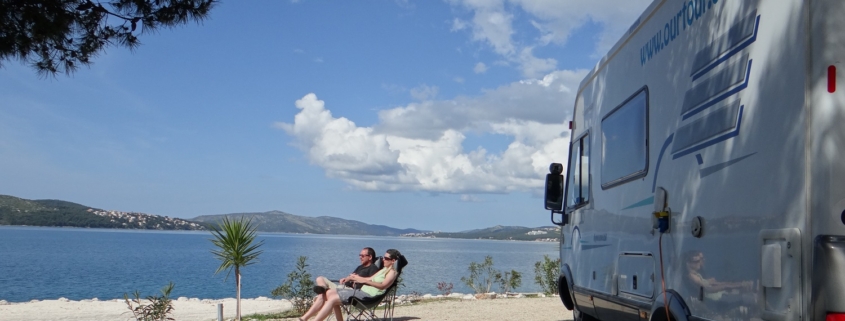
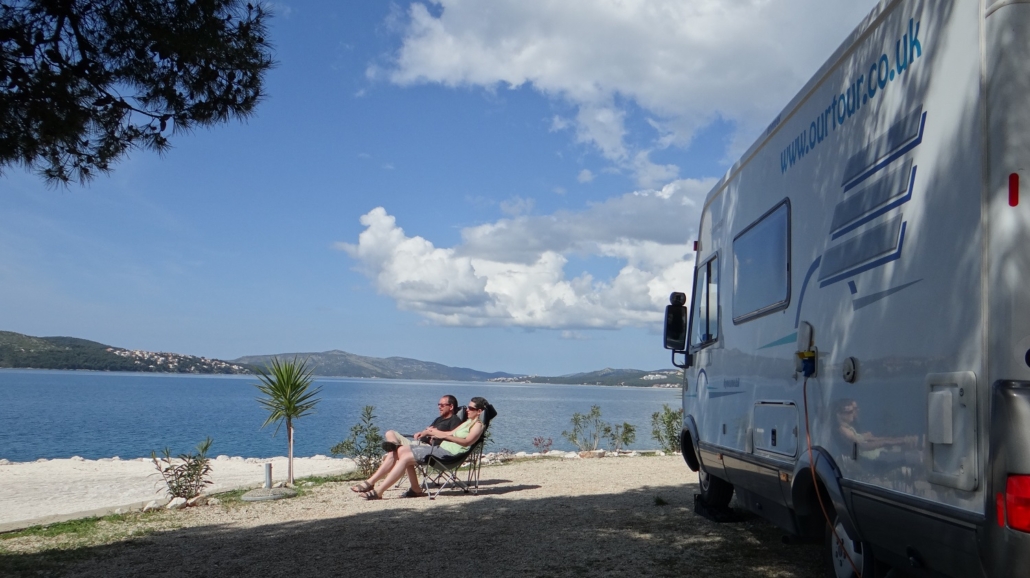
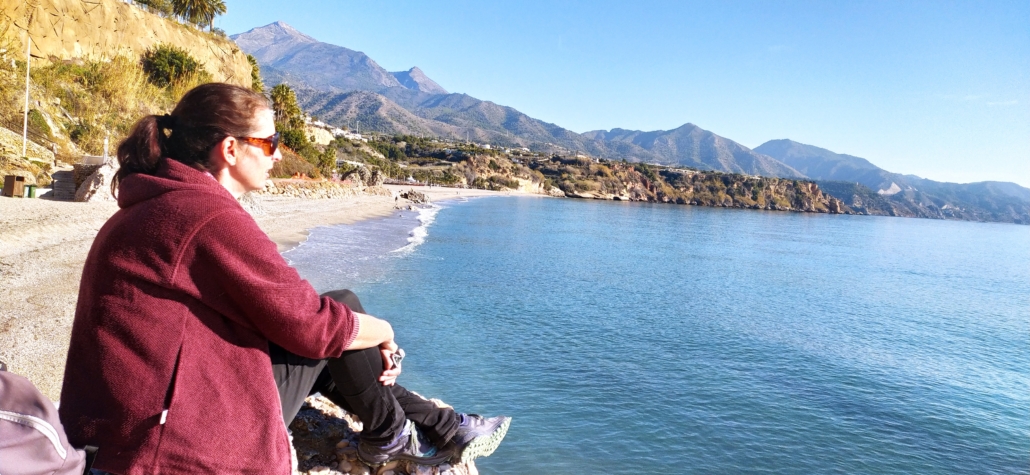

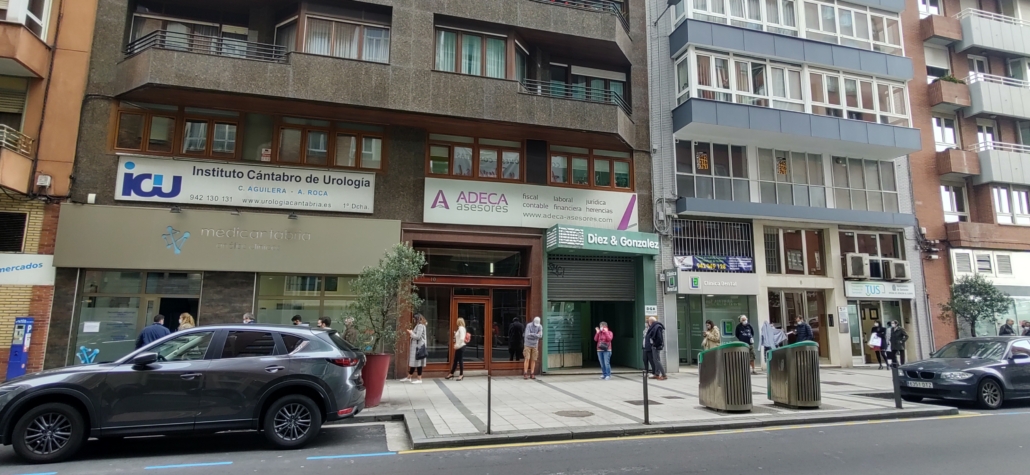
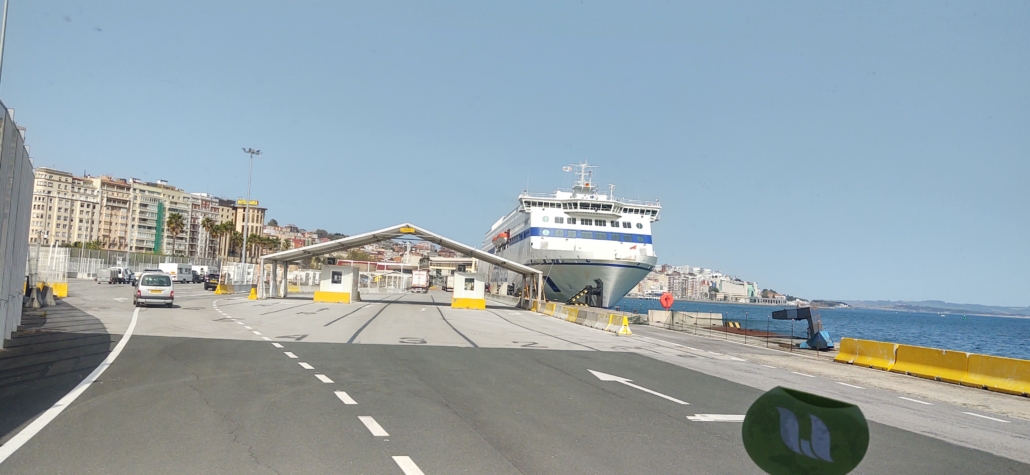
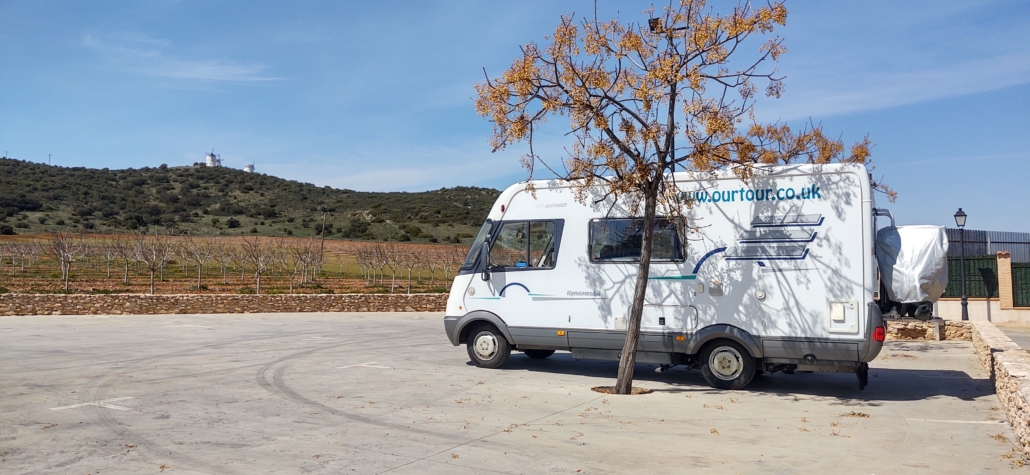
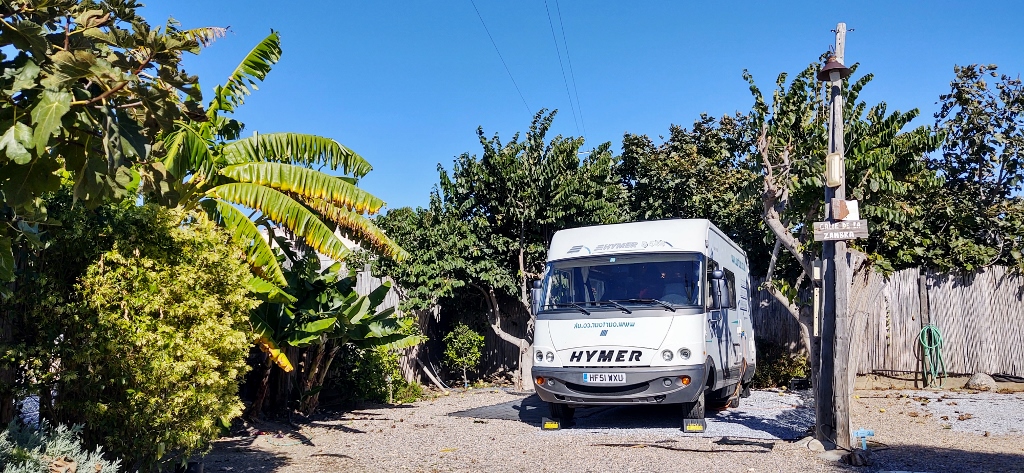



Thanks for the info. Very useful, we are considering a trip to France at end of June, but only if they are added to the green list. On your Brexit part, you mention meat and dairy products, which I understand. But also it seems we are restricted on plants including fruit and vegetables – according to caravan and motorhome club website. “You cannot take plants including fruit and vegetables with the exception of bananas, coconuts, dates, pineapples and durians. Check the rules on the European Commission website”. The link that they provide does not clarify the fruit and vegetables rules. If you have any insight into what is OK regarding fruit and veg that would be brilliant. E.G. Is tinned fruit and veg OK. Packets of nuts etc. Love your website. Best wishes Richard
Hi Richard
First off the best of luck for your trip in the summer – hopefully it’ll be nice and Green there by then!
Good question about taking plants into the EU. This official EU page states:
“If you travel to the EU from a non-EU country, you are not allowed to bring any meat or dairy products with you. You can however bring a limited quantity of fruit and vegetables as well as eggs, egg products and honey. Restricted quantities of fish or fish products are also allowed.”
I think the list of allowed plant products you’ve given comes from this EU law, which states these particular products don’t need a phytosanitary certificate. Whether this certification requirement applies to the import of fruit and veg for your own consumption is beyond me though. Although the official EU pages appear quite clear that we campervanners can’t be sneaking in meat and dairy with us, there’s no obvious statement I can find about fruit and veg. The news websites don’t seem to say anything about it either, so personally we’re not going to take meat and dairy, but we won’t worry about fruit and veg unless we come across something which makes it clear we can’t carry these to France/Spain etc.
Cheers, Jay
Jay,
Many thanks for your comments. It is somewhat confusing, but will doubtless become clearer once caravans and motorhomes start crossing in volume. In the meantime your plan sounds good to me. Best wishes Richard
Hello
Reading your quarantine testing descriptions and clicked on the link you mentioned Testing for All. In their introduction a video link was mentioned “You must attend a video call on Day 2 and Day 8 presenting your unopened swab using your mobile phone or laptop computer in order for this test to be valid.”
I think? you used a different testing company that you had trouble with, did you with the other company also have to make a video link?
Our problem is, the devices we use don’t have video, so either we can’t get back to the UK or we don’t have to test hahaha.
Any ideas?
Thanks, pleased to see you are settled in now,
Hi Jamie
Nope, ours didn’t have the video call requirement. As far as I know individual companies opt to use these to confirm all the parts of the test are there.
Cheers, Jay
Thanks Jason that helps.
Just got to find a test provider who doesn’t require a video link and ignore the higher costs.